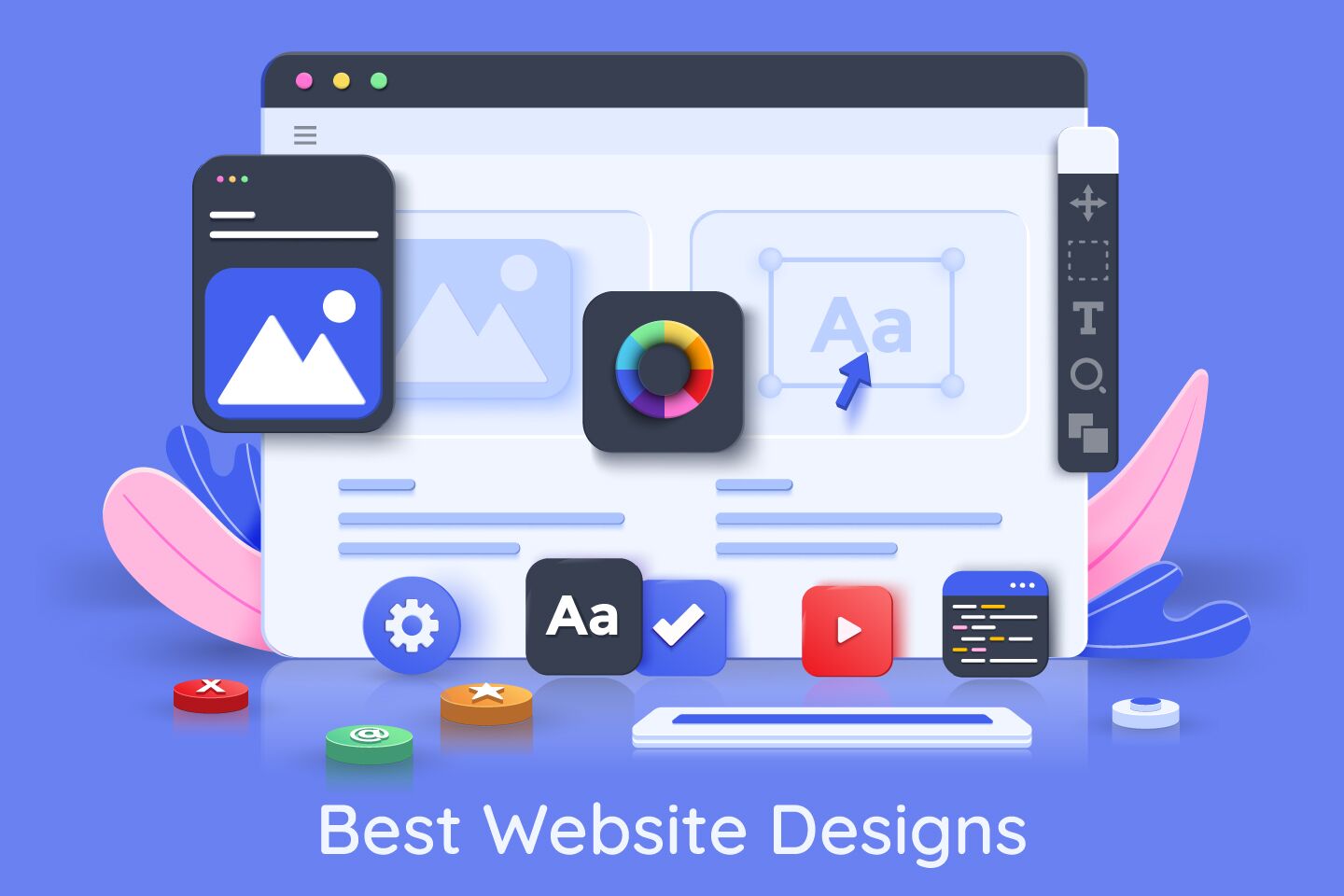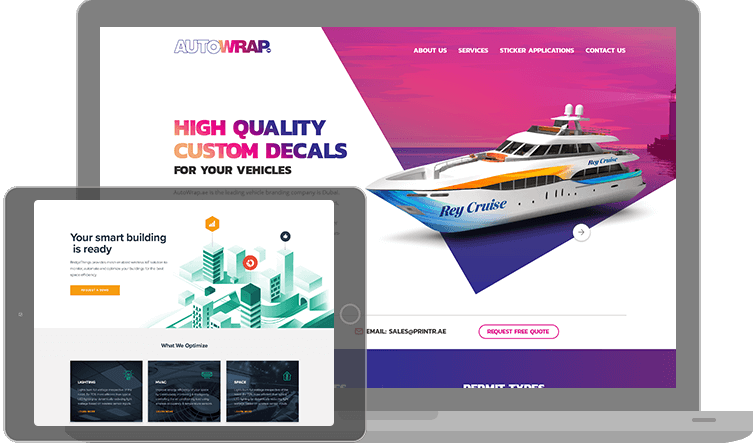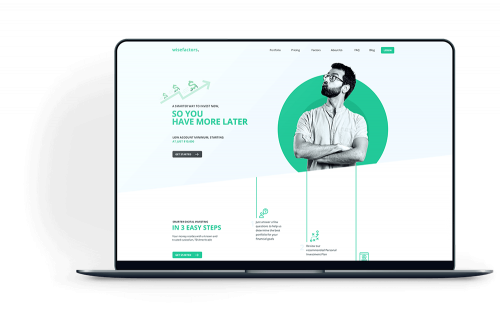Essential Tools Every Developer Demands for Spectacular Website Design
Essential Tools Every Developer Demands for Spectacular Website Design
Blog Article
Take Full Advantage Of Engagement: Proven Techniques for Outstanding Website Layout
Comprehending just how effective navigating, aesthetic pecking order, and content optimization assemble to boost customer involvement is essential for any organization seeking to make a meaningful effect. As we check out different tested methods that contribute to exceptional internet site style, the interplay between these components discloses not only ideal techniques but likewise innovative strategies that can boost individual experience.
Relevance of User-Centric Design
User-centric style is essential in producing effective internet sites, as it focuses on the needs and choices of completion customer from the very start of the layout procedure (website design). This strategy guarantees that the site is customized to supply an optimal experience for customers, facilitating engagement and complete satisfaction. By recognizing customer behaviors, objectives, and discomfort factors, designers can create user interfaces that resonate with their target market and cultivate a sense of link
Executing user-centric design involves extensive study, including customer identities and trip mapping, which assist in recognizing the details needs of different customer sectors. This data-driven methodology enables informed decisions regarding format, functionality, and content, ultimately causing the creation of a much more intuitive and appealing web experience.
In a competitive electronic landscape, focusing on user-centric style is not simply useful; it is crucial for driving interaction, lowering bounce rates, and cultivating user commitment. Efficient websites are those that reverberate with customers, making user-centric design a fundamental principle for effective web advancement.
Efficient Navigation Approaches
A well-structured navigation system is a foundation of effective internet site style, constructing directly on the principles of user-centric style. Reliable navigating allows customers to find details swiftly and without effort, enhancing their total experience and motivating longer brows through.
To attain this, consider executing a clear hierarchy in your navigating menu. Main classifications ought to be right away visible, while subcategories can be disclosed through dropdowns or expandable menus. This organization helps customers prepare for where they may discover pertinent material, lowering disappointment.

Consistency is crucial; make use of familiar terminology and layout components throughout the website to avoid complication. Breadcrumb routes can additionally be beneficial, supplying users with contextual recognition of their location within the site and allowing easy backtracking.
Last but not least, make certain that your navigation is mobile-friendly and receptive. As even more users gain access to sites by means of mobile phones, adjusting your navigation for smaller sized displays is important for maintaining use and accessibility. By focusing on these approaches, you can develop a smooth navigation experience that keeps users involved.
Visual Hierarchy and Format
Establishing a clear aesthetic pecking order is vital for directing users through an internet site's material efficiently. A well-structured design not only boosts user experience yet additionally affects just how site visitors engage and perceive with info. By tactically utilizing size, spacing, comparison, and shade, designers can create centerpieces that accentuate the most essential components, such as headlines, calls to action, or pictures.
Incorporating a grid system can better boost visual power structure by providing a consistent structure for material positioning. This organization enables customers to navigate the site without effort, making it much easier to digest details (website design). Furthermore, making use of whitespace is vital; it creates breathing space around elements, this page decreasing cognitive overload and emphasizing crucial web content

Web Content Optimization Techniques
While developing aesthetically attractive layouts is very important, the efficiency of a web site eventually depends upon just how well its material is maximized for both search engines and user involvement. Web content optimization includes a critical strategy that improves exposure and importance, inevitably driving website traffic and maintaining site visitors.
First, keyword research is fundamental. Identifying pertinent keywords that straighten with customer intent enables for the integration of these terms normally into headings, message, and meta summaries. This not only helps in ranking greater on search engines yet likewise boosts the clarity of content for individuals.

Furthermore, enhancing for neighborhood SEO can boost involvement for region-specific target markets. Incorporating local search phrases and creating material that addresses regional interests boosts importance.
Last but not least, consistently upgrading content makes sure that it remains fresh and important, appealing to both online search engine and returning individuals. By concentrating on these content optimization methods, organizations can look at this site develop a compelling on-line existence that fosters interaction and drives conversions.
Receptive and Mobile-First Approaches
Customer involvement and material visibility are progressively influenced by the ability of a web site to adapt perfectly across different devices. With the rise of mobile browsing, utilizing receptive design and mobile-first approaches has actually come to be vital for effective internet advancement. Responsive style guarantees that a solitary web site format changes fluidly to various display dimensions, from desktops to smart devices, thus giving a regular customer experience.
On the various other hand, a mobile-first technique focuses on the mobile customer experience during the style procedure. By making for smaller screens initially, developers can concentrate on vital functions and improve performance, guaranteeing that users are not overwhelmed by unneeded web content. This strategy additionally enhances filling times, which is vital for keeping visitors.
Both techniques add to greater interaction rates, as individuals are most likely to connect with a website that is aesthetically appealing and straightforward. In addition, internet search engine favor mobile-optimized sites in rankings, therefore enhancing visibility. In recap, embracing responsive and mobile-first design techniques is essential for maximizing customer engagement and guaranteeing that look at here content continues to be accessible and effective throughout all gadgets.
Conclusion
In final thought, the execution of user-centric layout concepts is crucial for making the most of interaction in internet site layout. Reliable navigating strategies, a distinct aesthetic hierarchy, and optimization of content considerably enhance user experience. Additionally, embracing mobile-first and receptive techniques ensures ease of access throughout various gadgets. Jointly, these methods not just assist in details retrieval however also foster much deeper user communication, eventually adding to greater interaction rates and overall website success. Prioritizing these components is crucial for effective site layout.
As we discover numerous tried and tested methods that add to impressive web site design, the interaction in between these aspects exposes not only ideal practices yet additionally ingenious methods that can elevate customer experience.User-centric design is important in developing efficient internet sites, as it prioritizes the needs and choices of the end individual from the very start of the style procedure. Reliable web sites are those that reverberate with users, making user-centric style an essential principle for successful internet development.
Receptive style makes certain that a solitary site format readjusts fluidly to different screen sizes, from desktop computers to smart devices, thereby giving a regular individual experience.
In summary, adopting mobile-first and receptive design methods is important for maximizing individual engagement and making certain that web content stays obtainable and efficient throughout all tools.
Report this page